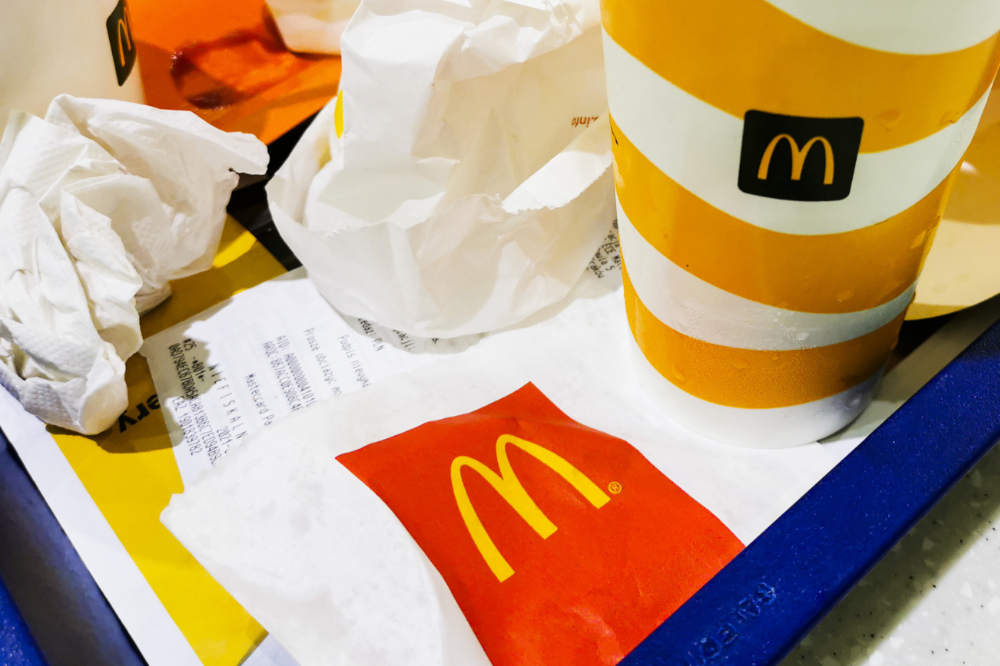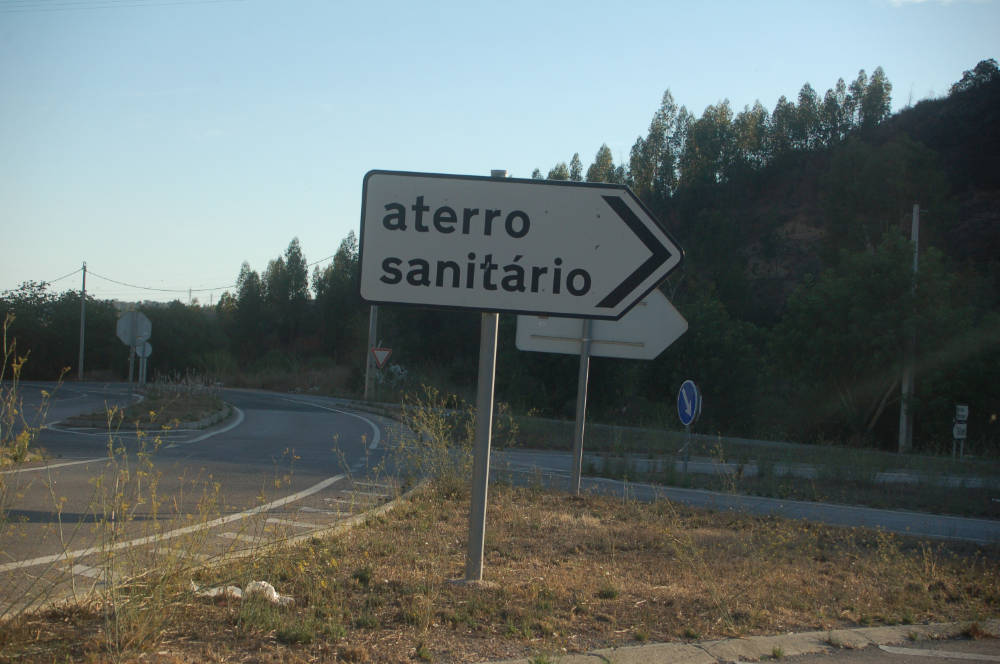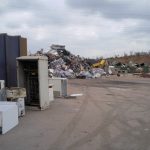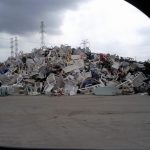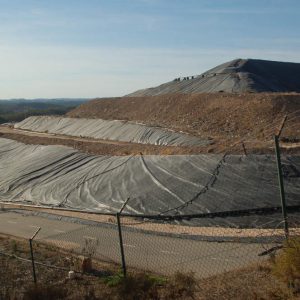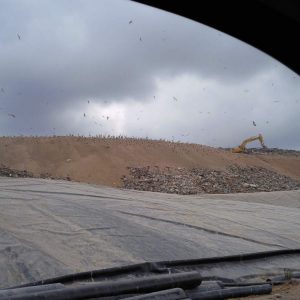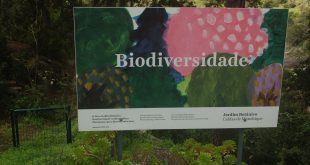Saturday 2nd October 2021.
Climate change. Climate neutral in ten steps? But of course. All we have to do is prepare for it. Every one of us. Whether we’ve learned this or not. Me for instance, my whole long life I’ve grown up with the concept of carrying my trash out to the bin once a week, for the binmen to come and collect it every Thursday. At some stage the concept of waste separation won the day: glass with glass, plastics with plastics, paper with paper, and so on. So I’d place the packaging material into the dedicated waste container, sorry, recycling container. Rubbish or recycling: out of sight, out of mind.
No. I’ve often asked myself where exactly this rubbish or packaging material is being driven to. And then, one day I went and took a closer look. A bulldozer was shoving the entire waste from my village backwards and forwards around this dump, compacting it on a landfill site as big as five Benfica football stadiums. I noticed that metal made for the best recycling, as a magnet was fishing it all out of the sheer endless mass. Plastics was the most difficult material.
Living for Life
The issue of waste carried on preoccupying me and wouldn’t leave me alone. So, I was thinking to myself, our waste from last week is supposed to remain there till kingdom come? A Tetra Pak milk carton which won’t decompose for several hundred years is lying buried there for some future generation to deal with in the year of the Lord 2222, or earlier, or even later? And this is becoming ever more and is never ending: a one-way street, an endless one-way street?
Those not producing garbage are freeing themselves from these notions about the idiocies we are doing on and to our planet. They find deeper meaning in life. In that moment I realised that something felt wrong here, and wanted to see what it would be like to not produce any waste. I got friendly with this idea, and lo and behold, it was fascinating actually.
Which is why I’d recommend that we prepare for the time when we won’t be producing waste anymore. We’ll all feel a bit better. No trash? Yes, let’s prepare to be be responsible for zero waste. I’ve not managed it quite (yet), but will keep trying, at least for as long until I’ve achieved this and am able to recycle everything in my household. For a very important step towards climate neutrality is not only to define an end point to the burning of fossil fuels, but also to not create any more waste. This is about starting to turn around our perspective in thinking about things …
We have to internalise the idea of recycling, of reducing and repairing and apply it to all parts of our lives. When politicians claim that to become climate neutral we don’t have to renounce anything, it’s one of the many small and large untruths because they don’t know any better. Politicians have to renounce their frequent flying, their big Volvos V80: this now applies in particular to the new mayors following the elections. I’ve gone way beyond that. I don’t miss the petrol-engine car. Let’s go back to the start: let’s tackle waste. So I’ll change my shopping behaviour up to the point where I’ve truly found a new direction and am sure of what I’m doing. The goal is to go shopping in such a way that there is no more packaging involved. The goal is Zero Waste. Of course it’s not quite as simple as I am describing it here. The times they are a’changing, those wanting to be part of it will have to keep practising. The most honest solution for the whole thing would be if your mayor (town councillor) were to provide an incentive for recycling: a bonus for instance. Because then I won’t take my bag out to the bin, no, I’ll sell my glass bottle and my washed empty metal tin. This is already happening in places such as Italy and Germany. The best example is provided by the deposit return scheme and the used paper, which you can already swap for money. Where is that? All will be revealed if you send me your own trash story, to editor@eco123.info.
Let’s ban all plastic bags and plastic packagings from our households. When I go shopping I only buy local produce and bring my own fabric bags or raffia baskets. To shop in this way requires full-on awareness, which is why Friday is my shopping day, the one shopping day. On all other days I no longer buy anything, apart from at the Sunday farmers’ market in my village. How do you work it with the goat’s milk? a friend asked me recently. I have a stainless steel milk can taking 5 litres, and once a week I’ll buy goat’s milk from the farmer. I pay him a fair price for the milk which I then boil at home, filling it into glass bottles and putting them in the fridge. That way we have a bottle of milk for every day of the week. We make our own yoghurt at home, as well as fresh kefir and curd cheese. This is very easy and fun too. It also gets rid of the need for the plastics-aluminium packaging that Tetra Pak uses for milk, as well as the myriad plastic containers for yoghurt. A first step is always taken by a single person somewhere. When I walk through a supermarket I always imagine that a plastic container like that is used only once before being thrown away. What a waste of resources! Where is this going to end? Will our kids all live on a landfill site at some point?
In this way I change my behaviour taking many small steps. If we were to do that now in our village with everything, which would take a few years, for sure, we’d soon be climate neutral. And I’d start at the very end of the chain, with the trash. Now if I was to receive a deposit fee for a can or a bottle, the problem would be more or less solved. Those who achieve moving through life trash-less will also manage to recycle clothing and all other goods, reducing consumption even. Because at some point we realise that there are many things we are using only once a month or even less. Then we’ll ask ourselves „Do we really need this? Do we have to buy this? Or could we borrow it from a neighbour?“ Exchanging instead of owning, that’s something we are not yet learning in school, but how about starting right now?
 Eco123 Revista da Economia e Ecologia
Eco123 Revista da Economia e Ecologia

